Both minimalist and slow travel are powerful tools towards sustainability in travel that should be talked more about. Yet, there are large amounts of travelers doing this as a living, even now during a pandemic, these individuals are floating around slowly, making a minimal impact on their destinations.
I’m super excited that Queenie Mak, founder of the minimalist solo female travel blog, MS Travel Solo, brings up the topic in this inspiring interview about responsible travel.
But before we get into the good stuff, let’s get to know Queenie a little more.
Meet Queenie Mak
Queenie is a Chinese-Canadian solo traveler and blogger behind MS Travel Solo, a website featuring solo travel destinations, solo travel tips, and minimalist travel.
Born in Hong Kong and grew up in Toronto, Canada, Queenie has been traveling solo for more than 18 years. Even though she had many career changes, traveling has always been there. So she took the opportunity to return to Asia four years ago to travel full-time, search for off the beaten path places and start a blog about solo travel. She wants to use her blog as a platform to show women that traveling solo is not so scary, but rather very empowering.
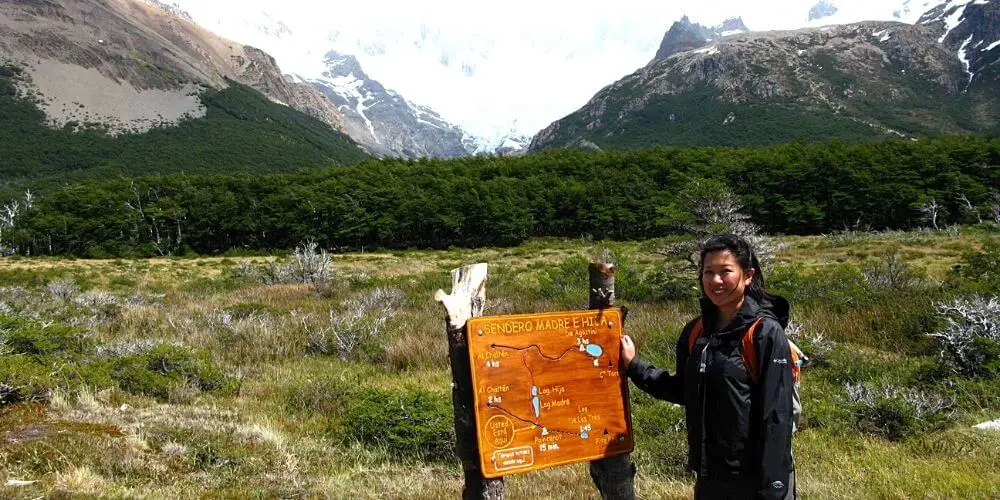
Interview with Queenie Mak
What does travel mean to you?
Traveling means the world to me! I’ve been a traveler my whole life (since the age of two). And I started traveling solo in my mid 20’s and haven’t stop ever since.
Ever since I was a young kid, I’ve always been a wanderer. I like to roam around and discover new things. I love the freedom that comes with exploring and venturing out into the world.
And when I travel alone, I learn a lot about myself. I am who I am today is because of all my solo traveling experiences. I became more independent and more confident, not only in my travel life but also in my everyday life. I find that I am much more decisive, and I take the initiative to do a lot of things. And I feel the happiest when I am on the road by myself.
What does responsible tourism mean to you?
For me, responsible tourism means being conscious of the way I travel and how my actions impact the world, specifically sustainability and the supporting local economy.
In terms of sustainability, I try not to create more waste by buying food with packages, bottled water, etc. I travel with my own set of utensils, including a metal straw. Recently I added a collapsible container for take-away food, and I always have a cloth bag for grocery shopping.
I’ve been slow traveling the past few years, and it allowed me to be more present and to connect with the local environment and local people. I always buy food from local markets over supermarkets, and I eat at local authentic mom-and-pop restaurants over big restaurant chains. I really believe in supporting local businesses because they give the city so much character and charm, and those are the precise reasons why I want to travel and visit those places.
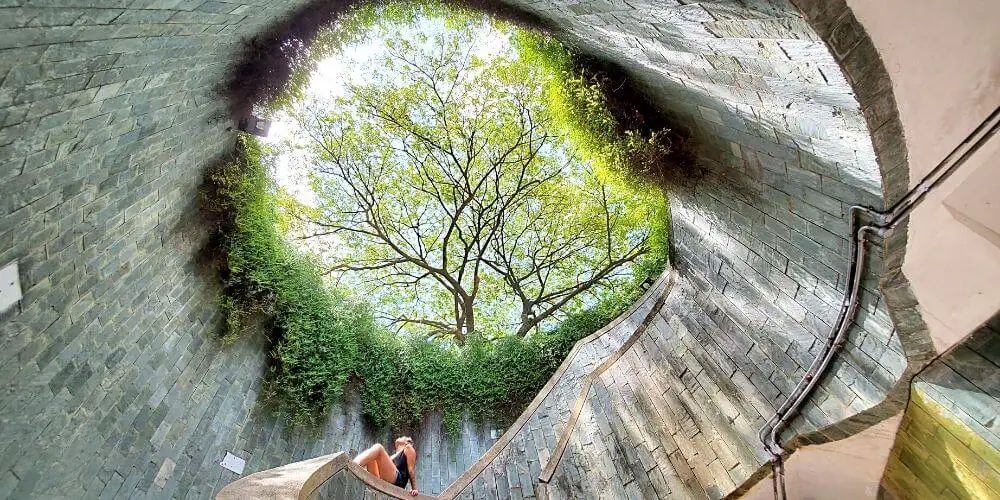
When did you first start to be conscious about the way you travel and the effects your travels have on your destination?
I brought a 75-liter backpack on my big backpacking trip in 2008, which included a countless amount of summer clothes and random things like a bedsheet! I realized how physically and mentally drained I was by dragging around a big backpack. And I didn’t use half the stuff in my bag!
After that trip, I started to trim away my belongings. I downsized to a 55-liter backpack, then a 33-liter. Currently, I use a 24-liter pack for any trip. It can be a long weekend trip to a 5-month journey.
Through this process, I became aware of how little I actually need. My road to minimalist travel has freed up my mental headspace and allowed me to be present and really prioritize what is important.
And it changed the way I travel. I would support local businesses by staying in local accommodations rather than big hotel chains. I would travel by bus instead of flying because I want to minimize my carbon footprint. And I do simple things like eating in instead of getting take-out so I can reduce unnecessary waste and also have the ability to connect with locals and have an authentic experience.
So hopefully, the collective effort can help the environment and the local community.
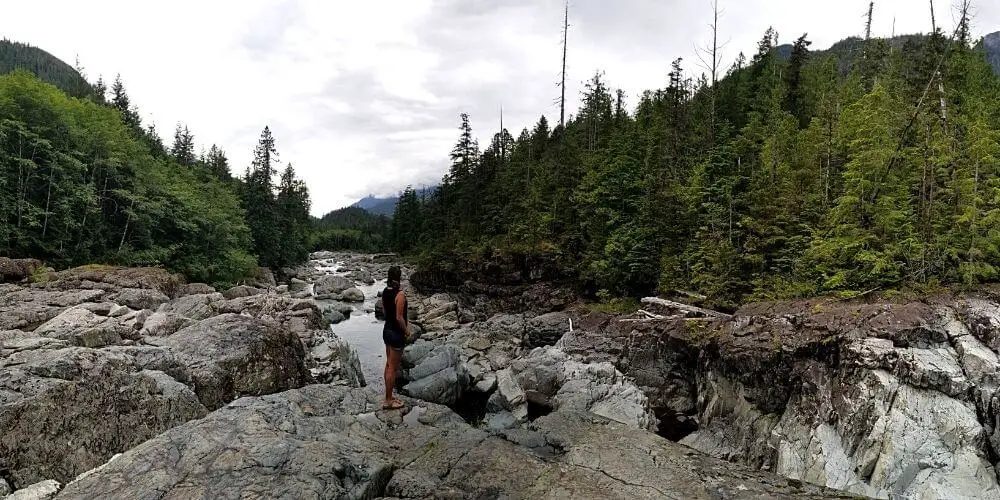
Have you traveled to a specific destination that you found especially sustainable that you would like to recommend to other travelers?
Japan’s infrastructure really makes it easy for people to do their part in helping the environment. At the household level, everyone separates their garbage and different types of recyclables.
At the city level, there are many recycling bins, especially at convenience stores and supermarkets. Locals bring back clean food packages, plastic bottles, and glass bottles and put them in the specific recycling bins.
Moreover, many products have labels that tell you exactly if the packaging can be recycled or not. I’ve even seen instructions on how to disassemble a milk carton so you can recycle it correctly!
Finally, this is something I read recently that I thought was super cool of Japan. For the upcoming Olympics in Tokyo, Japan made Olympic medals out of old electronics. They collected old mobile phones from all over Japan for the past two years. Way to go, Japan!
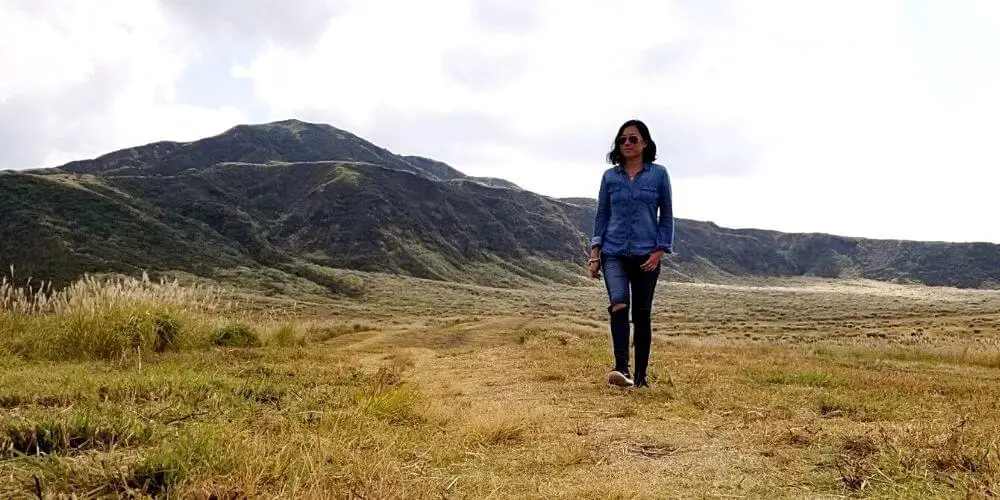
What do you do to travel responsibly?
I already mentioned a few things about how I travel responsibly, like choosing specific transportation methods to reduce my carbon footprint and bringing my own set of utensils wherever I go.
I feel like it all boils down to slow travel. For example, when you slow travel, you tend to stay longer at the destination, so you may need cheaper accommodation and maybe even a place with a kitchen so you can cook your own meals.
As a byproduct, you are investing in the local community by giving money to owners of the accommodation and the food vendors. And because of slow travel, you are not causing additional CO2 emissions, which in turn has a lower environmental impact.
Slow travel is about being present, being sustainable, and immerse in local cultures. If you’ve never tried slow traveling before, I highly recommend trying it at least once!
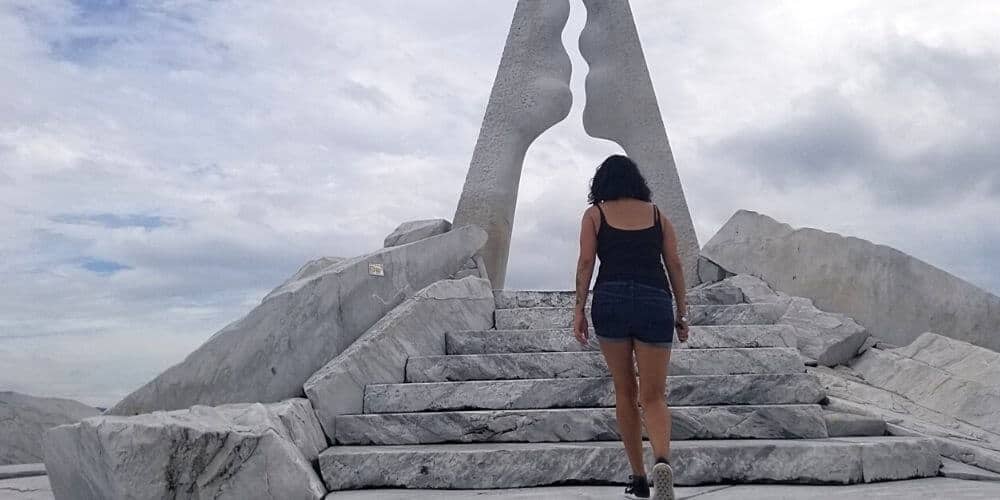
What are your top 3 advice to travelers that want to travel more responsibly?
If you want to be more of a responsible traveler, here are some things to keep in mind:
- Create your own travel kit. It can include a set of utensils, including a fork, spoon, knife, straw, a water bottle, and a travel mug. I always travel with all of these items so that I can minimize waste.
- Be conscious of the things you buy and consume. For example, when you are buying food, select the ones that don’t have a lot of packaging. And if you have to buy something, choose to support a local food vendor than buying it from a supermarket.
- Have a slow travel experience on your next trip. When you slow down, you can be more present, appreciate what is happening, and enjoy your trip in a more profound and meaningful way. And you can help the local community and environment too!
See more from Queenie
Don’t tell me that you didn’t get just a little bit inspired to slow travel after reading this interview! Slow travel has always been my favorite way of exploring, though I know it’s hard when you only have a few weeks off in a year. But try to slow down, as Queenie recommends, it will change the way you see the destination and it sure will change the impact you have on the society.
Make sure you check out this inspiring lady’s blog, MS Travel Solo, for minimalist solo female travel tips. You can also tag along on her Instagram, Twitter, and Pinterest to see what she’s up to!

Those three pieces of advice are indeed very necessary. Having a travel kit makes things easier while travelling slow helps us embrace the essence of a place or culture in its true sense.
It truly does! Glad you found it useful, it was an inspiring interview:)